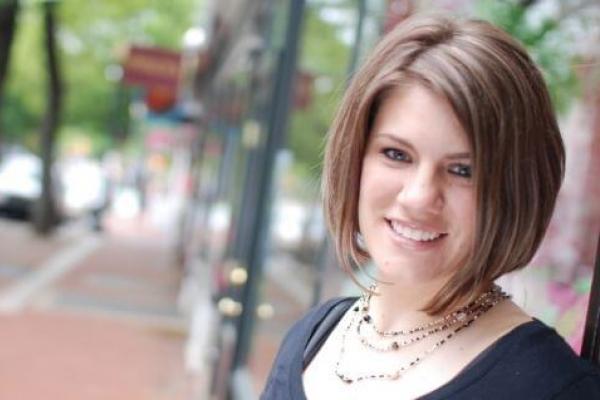I stopped praying for God to turn me into a boy after I found Rachel Held Evans and her work. I was convinced that God might love girls, but not so much women. In my world, there was little challenging the ideology that patriarchy was God’s good plan for us. Rachel was the first evangelical I knew who began to articulate any kind of challenge to that idea. Forming a digital community through her writing, she asked the hard questions that haunted thousands of us everywhere. She took a particular risk of faith many of us felt we could not, “the risk of birth” as she would later articulate while referencing Madeleine L'Engle's famous poem. Rachel’s writing and preaching over the years demonstrated a commitment to faith over unquestioning certainty.
For many, Rachel was the first Christian who looked, sounded, and believed just like us, but had a refreshing honesty and openness about her doubts, questions, and practices. Evangelical women, entrenched in varying degrees of theology that smothered or suffocated our bodies and selves, could breathe out for a blog post or two. She was a midwife of sort, laboring alongside and with us. She introduced her readership to a diverse host of people and perspectives over the years, inviting everyone to bring online folding chairs to this ever-widening table of faithful doubters and the doubting faithful.
In the hours after her passing, #BeacauseOfRHE started to circulate on social media, and the immense gift that her witness was and is became strikingly apparent all over again. Countless women, people of color, and LGBTQ persons alike stayed participanted in a faith tradition we used to believe would only ever tolerate us at best or denigrate us at worst. We have challenged traditions and habits of corrupted power in part because she gave us the space to question those things in the first place. We went from sustaining and baptizing ways of the empire to feeling emboldened and empowered to also become midwives for our own communities, working for a kingdom that was truly good and holy.
When Rachel first fell ill, we lifted her up in prayer. I was probably not alone in fully expecting that she would awake from her coma to bring all of us, her internet flock and close friends, new insights and wisdom about her experience. Among those who acutely feel the loss of hero, a friend, and a champion, there is a sense that the world is much dimmer and that a voice we expected to keep speaking forever has been abruptly, unfairly silenced.
For the weary, Rachel was like Wonder Woman. She was a brilliant force of wit and bravery who stepped into evangelical arenas of thought and theology, not only changing the game but passionately and kindly challenging the rules by which it was played. Anyone with a brain, a question, and a desire to know the truth could be encouraged that entry to participate in theological discussion and debate did not require that stamp of a formal degree.
So how do we now live in a world without Rachel Held Evans writing and fighting? It is tempting to freeze her in that superhero role, to frame her legacy primarily in terms of individual and singular achievement cut short by the fragility of human life.
She’s a hero not because she did what cannot be done, but because she showed us what is possible when we allow the good news to sink into our particular, God-breathed being. The depth of her legacy lies in how she communicated to hundreds of thousands of people that she was simply a thinking woman who was willing to take a risk on the story of Jesus. A risk anyone, anywhere, could also take.
She said it best in 2016:
But if the incarnation has anything to say about it, we don’t get to wait around for ideal circumstances to begin creating, birthing, nurturing, planting, protesting, and working together to heal the world.So my prayer for you today, and in the days, weeks, and months ahead, is this: No matter what it means to you, take the risk of birth. Don’t be afraid.
Rachel always pointed back to where the real power was. It was never with the gatekeepers. It was never in the empire. It was never in pretending you had all the answers. It was in the gospel of Jesus and in God’s love. We honor her by acknowledging that and then helping others to do the same.
So many of us have not made it home yet. We’re searching for Sunday like she was. No one person can or will ever step into Rachel’s place. But I cannot think of a better way to honor her and the gospel she so passionately and bravely shared, than every woman stepping boldly into her own place.
Sow the seed you have received.
Rest in power Rachel. May you rise in your sisters.
Alex
Got something to say about what you're reading? We value your feedback!







